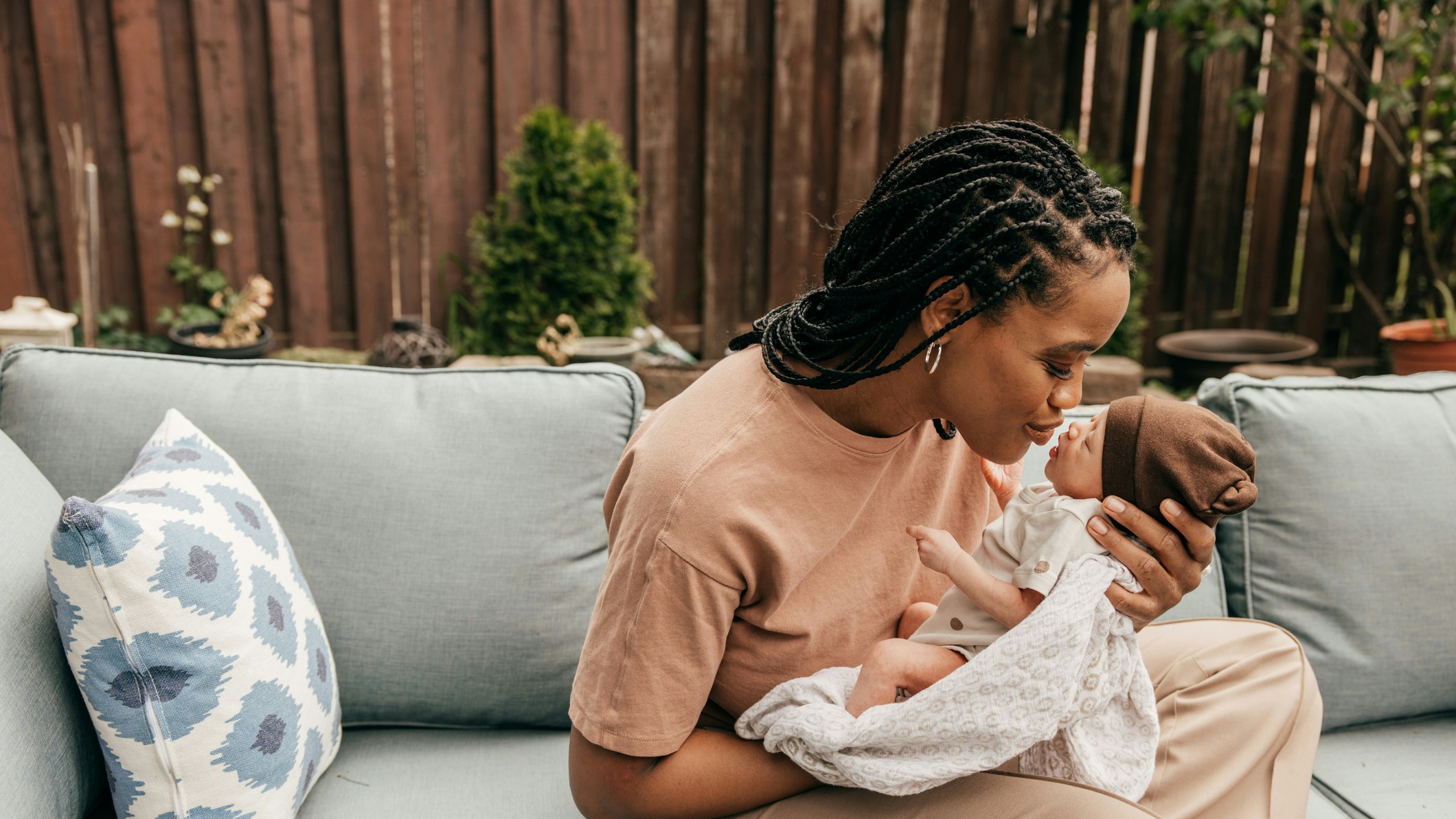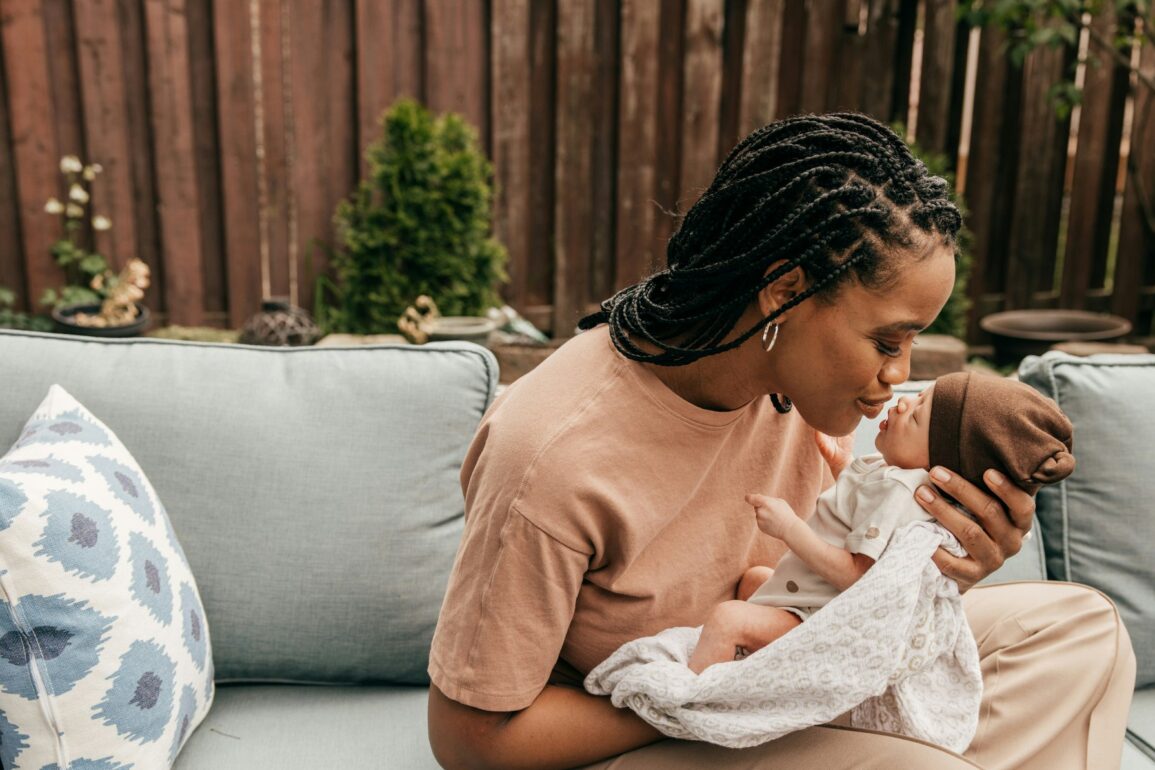
This Black Maternal Health Awareness Week, we need to be shouting about the fact that Black women today are four times more likely to die in pregnancy and post-birth. Atinuke Awe, co-founder of Five X More, explores what needs to change…
This week is Black maternal health week, a week dedicated to raising awareness of Black maternal health outcomes but also working towards change. But why do we need an awareness week?
Black women today are four times (3.7) more likely to die in pregnancy and post-birth – which is a devastating figure, but just five years ago, this number was even higher.
At Five X More, we’re dedicated to raising awareness about the disparities in Black maternal health and advocating for change. We offer free resources and an app for women, and we lobby the government to ensure that those in power are listening and acting.
I myself suffered a traumatic birth, which started with undetected pre-eclampsia, which is a life-threatening condition for both mother and baby. My condition wasn’t picked up on even though I was clearly showing signs during my pregnancy – it was this that led me to be induced. The birth experience that followed was incredibly difficult; things progressed very quickly, and yet I was doubled over in pain and vomiting before they discovered my labour had escalated, and I was very close to giving birth. I wasn’t listened to, and I didn’t feel able to advocate for myself when I was at my most vulnerable.
As a new mother, I just assumed bad experiences were the norm. I run a group called Mums and Tea – where mums get together to talk about all things pregnancy and baby-related, and it was in these groups that it became very obvious that there were so many other Black mums who, like me, also had experienced negative pregnancy and birth outcomes. I was shocked, but at the same time, I wasn’t surprised when the statistics came out showing the disparities in outcomes. Shortly after, I joined forces with my co-founder Clo, who was working day to day with ethnic minority parents in the perinatal stage. We knew we wanted to drive awareness of these issues we were seeing – that moment was when Five X More was birthed.
The progress made in this area in the last five years has been significant. Until recently, Black women in the UK were five times more likely to die during pregnancy and after childbirth compared to their white counterparts. This Black Maternal Health Awareness Week, we are calling for further advancement and more research into maternal health outcomes for Black women. Black women and birthing people experience higher rates of complication in childbirth, and yet the education for the issues that Black people face in maternity is far too low; for example, what do certain conditions look like on Black skin?
Seyi Bakare is a mother from Romford who knows this only too well. She has experienced three labours, all riddled with complications, with her second ultimately resulting in the devastating stillbirth of her daughter. Seyi was bleeding for an hour and a half at her sister’s wedding before an ambulance arrived. She wanted to go to her hospital, where they had her notes and understood her journey, but this was overlooked, and they took her to a new hospital. After she arrived, they changed their mind and took her to her original hospital. All crucial time lost in transit.
She explains: “I was 36 months pregnant and bleeding, and I believe that had I got to the hospital sooner, I think she would have survived.”
Seyi went on to have a third child but suffered a placenta abruption for the second time. She rushed into the hospital but was told to wait. She explained her situation, that this was a pregnancy after a loss and that she knew what was happening. Eventually, she was seen.
As Seyi puts it: “I am incredibly articulate. I have had to be. I have trained myself on all medical terms because of what I have faced. But what about people who might not be able to advocate for themselves?”
We hope that Five X More will not exist in the future — that is the goal — but until then, we will continue to provide the education and awareness needed to bring these numbers down.
To support Black Maternal Health Awareness Week, head here.



